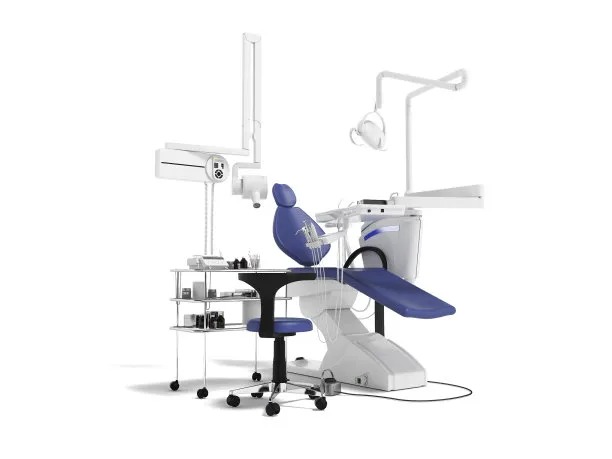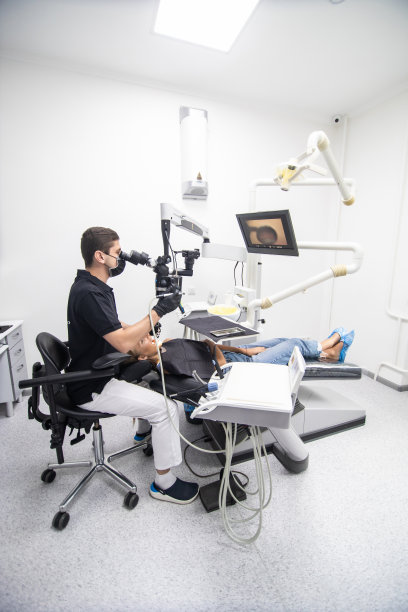Summary: Dental fillings are a common procedure that can address cavities and restore oral health. However, ensuring safety and comfort before the procedure is crucial. This article outlines essential safety measures and recommendations to consider prior to undergoing a dental filling. Key aspects include choosing a qualified dental professional, understanding the materials used for fillings, preparation steps before the procedure, and post-treatment care. Following these guidelines can enhance patient safety, minimize anxiety, and promote optimal healing, ensuring a positive dental experience.
1. Choose a Qualified Dental Professional

Selecting the right dental professional is essential for a successful filling procedure. Consider their credentials, experience, and patient reviews. A qualified dentist should have relevant certifications and a track record of performing dental fillings with high patient satisfaction.
Ask your dentist about their experience with the specific filling material that will be used. Different materials have varying properties and application techniques, so understanding this can help you feel more confident in your choice of practitioner.
Trust your instincts when meeting with the dentist. A good rapport and clear communication are crucial in discussing expectations, which can alleviate anxiety about the procedure.
2. Understand Filling Materials
Filling materials come in various types, including amalgam, composite resin, glass ionomer, and porcelain. Its important to understand the advantages and disadvantages of each to make an informed choice. For example, while amalgam is durable and cost-effective, some may prefer the aesthetics of composite resin fillings.
Inquire about the safety and longevity of the materials being used. Dentists typically provide insights into which materials are best suited for different dental situations, ensuring maximum efficacy and minimal risk.
Be proactive in discussing potential allergies or sensitivities to dental materials with your dentist. It’s critical to disclose any previous reactions to ensure the chosen filling material aligns with your health needs.
3. Preparation Steps Before the Procedure
Proper preparation before undergoing a dental filling can significantly impact the overall experience. Start by maintaining open lines of communication with your dental care team. Confirm your appointment, understand what to expect, and ask any questions you may have.
Dental anxiety is common, but there are ways to mitigate this. Consider relaxation techniques, such as deep breathing or visualization, to ease nervousness before the appointment. Some patients may also benefit from discussing sedation options if anxiety is severe.
Ensure you follow any pre-appointment instructions given by your dentist, which might include dietary restrictions or medication adjustments. Such guidelines are essential for your safety and comfort during the procedure.
4. Post-Treatment Care and Considerations
After the filling procedure, follow-up care is vital for a smooth recovery. Your dentist will likely provide guidelines on eating and drinking after the treatment. It is typically recommended to avoid hard foods until the local anesthesia wears off to prevent accidental biting.
Pay attention to any discomfort or unusual sensations in the treated area. If the filling feels unusually high or painful when biting, contact your dentist promptly for adjustments. Early intervention can prevent further complications.
Regular follow-up appointments are important for monitoring the integrity of the filling and overall dental health. Consistently practicing good oral hygiene will help maintain the longevity of your filling and prevent future dental issues.
Summary:
In summary, dental fillings are an effective remedy for cavities, but taking the necessary safety measures and recommendations can significantly enhance your overall experience. Choosing a qualified professional, understanding the materials, adequately preparing for the procedure, and practicing proper post-treatment care are vital steps towards a successful dental journey.
This article is compiled by Vickong Dental and the content is for reference only
Vickong Dental
Vickong Dental is a large medical group established in Hong Kong in 2008 by professors from well-known medical universities in Guangdong and Hong Kong, as well as medical doctors from key national '985' universities (including Master's supervisors and senior professors). The chain of branches brings together expert dentists with PhDs and Master's degrees from Hong Kong and Mainland China, committed to providing high-quality dental treatment.
"Vickong Dental Practices the University Motto of 'Healing and Serving Society,' with a Stable Operation for Sixteen Years. It Has Been honored with Hong Kong Enterprise Leaders's Choice,' and is a Global Trusted Implant Center for the Nobel Implant System. Recommended by Hong Kong Metro Broadcast and Guangdong Television, it Serves Customers from Over Thirty Countries and Regions, Gaining the Trust and Favor of Citizens from the Guangdong-Hong Kong-Macau Greater Bay Area and Surrounding Cities.

Thousands of customers' unanimous praise
The most recognized and highly recommended dental service by customers in the Guangdong-Hong Kong-Macau Greater Bay Area
We Ensure You Receive Detailed Care and Attention Here
Hong Kong standards, Shenzhen prices, Your Trusted English-speaking dentists

Vickong Dental Medical-Grade Instrument Disinfection Process
Vickong Dental Medical-Grade Instrument Disinfection Process

Vickong Dental Chain: A Warm and Comfortable Environment for Treatment






Appointment Hours

Q&A
Why choose Vickong Dental?
Vickong Dental practices the university motto 「Medicine to Benefit Society」, with each branch bringing together highly qualified dentists with doctoral and master’s degrees from Hong Kong and the Mainland, and has maintained seventeen years of steady operation。Recipient of 「2024 Hong Kong Enterprise Leaders Brand」, 「2025 Hong Kong Enterprise Leaders Brand」, a Nobel Biocare Global Trusted Implant Center, and a brand recommended by Metro Radio Hong Kong and Guangdong TV。
To date, we have served customers from more than thirty countries and regions,earning exceptionally high word-of-mouth recognition and trusted recommendations from residents across the Guangdong-Hong Kong-Macao Greater Bay Area and surrounding cities
We have eight major branches in Zhuhai、Shenzhen,and a consultation and service assurance center in Hong Kong,so you can book a free consultation at any time for any questions,which is very reassuring.
If I do not accept the quotation after the CT scan, will I be charged??
No! As long as the actual treatment has not started, you will not be charged any fees.
Will there be any additional charges during the treatment process?
No, there won’t be any additional charges. Before treatment begins, we will clearly explain the treatment plan and its corresponding fees. Only after the patient agrees and signs the consent form will we proceed with the dental service.
Can I pay in Hong Kong dollars?
Yes. Vickong Dental accepts payment in Hong Kong dollars. The amount will be converted based on the exchange rate of the day, and the applicable rate will be clearly communicated to you in advance.
Can I reschedule my appointment at any time?
Yes. Please contact us via **WeChat** or **WhatsApp** as early as possible, providing your original appointment time and details, along with your preferred new date and time slot for rescheduling.













